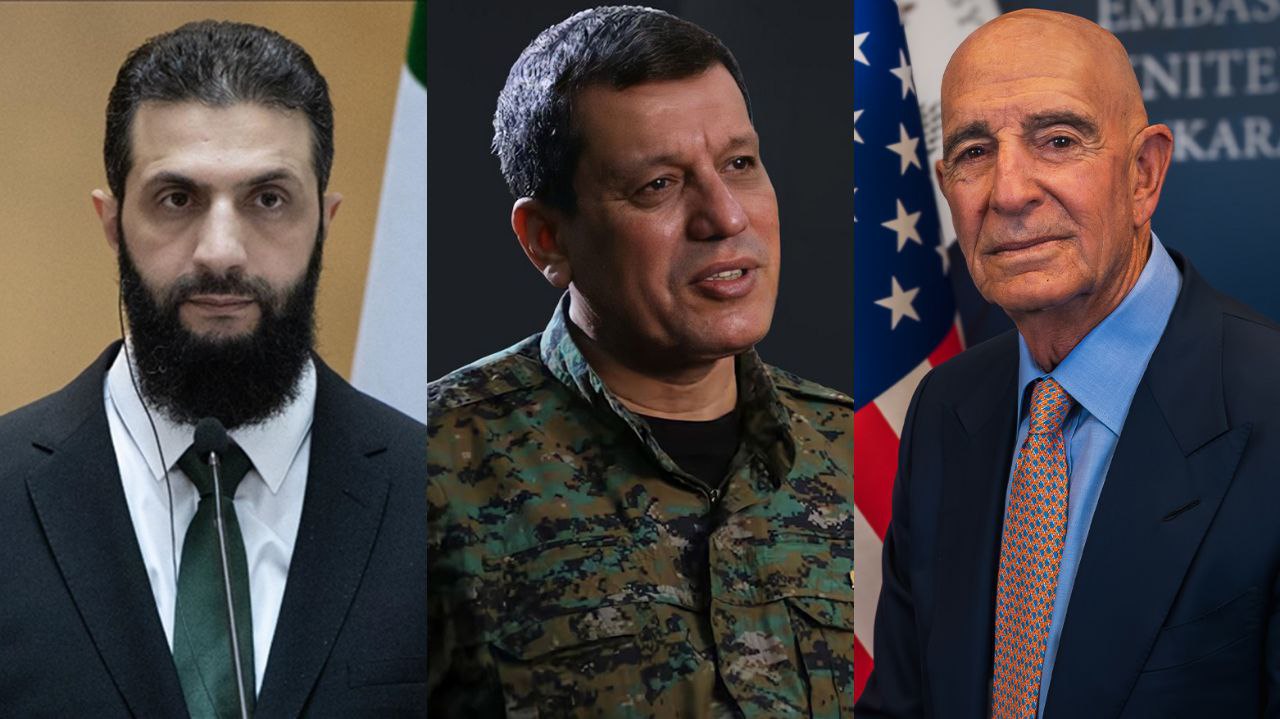 Ongoing negotiations between the Syrian government and the US-backed Syrian Democratic Forces (SDF) have hit a roadblock, with officials and sources close to the talks blaming the impasse on the SDF’s unwillingness to compromise on key issues outlined in the March 10 agreement.
Ongoing negotiations between the Syrian government and the US-backed Syrian Democratic Forces (SDF) have hit a roadblock, with officials and sources close to the talks blaming the impasse on the SDF’s unwillingness to compromise on key issues outlined in the March 10 agreement.
Despite active mediation by US Special envoy to Syria Tom Barrack, and the participation of European observers, including France, the latest round of discussions concluded without major breakthroughs. According to sources speaking to Levant 24, the government reiterated its commitment to national unity and the integration of all local institutions and military forces under a centralized Syrian state, while rejecting demands for decentralization or federalism.
A One-Sided Stalemate
The SDF, continues to insist on preserving its military structure and advancing its model of decentralized governance in northeastern Syria. Damascus views these positions as incompatible with Syrian sovereignty and the provisions of the agreement signed in March between President Ahmad al-Shara and SDF commander Mazloum Abdi.
“The Syrian government remains committed to the unity of the nation and the inclusion of all citizens in state institutions,” a source informed Levant 24. “But meaningful progress requires mutual flexibility, which has not been forthcoming from the SDF.”
Officials added that all solutions proposed by the Syrian Ministries of Foreign Affairs, Interior, and Defense during recent talks were rejected by the SDF, leading the American delegation to briefly withdraw from the session in frustration.
Regional Friction and Domestic Challenges
The talks come amid heightened internal tensions within the SDF itself. Last month, SDF forces arrested at least 20 Arab commanders in Deir Ezzor, sparking accusations of marginalization and abuse of power. Local tribal leaders have criticized what they see as a campaign to purge Arab influence from key positions, further complicating any future reconciliation with Damascus.
The US and Syrian sides had hoped the March 10 agreement would serve as a framework for full reintegration of the northeast—including its oil and gas assets—into the Syrian state. The deal also promised constitutional guarantees for Kurdish citizens and emphasized the rejection of sectarianism and division.
However, recent moves by the Autonomous Administration of North and East Syria (AANES) to challenge the constitutional process and seek new concessions have drawn criticism from both the Syrian government and Western observers.
Time is Running Out
The US and France remain involved in overseeing implementation of the March agreement, which is scheduled to conclude by the end of this year. Damascus has warned that continued delays risk deepening instability and prolonging the administrative vacuum in northeastern Syria.
“The path forward exists,” a Syrian official said. “But if the SDF continues to place rigid ideological demands above national unity, progress will remain stalled.”
The Syrian government reiterated that the Kurdish community remains a vital component of the Syria’s social fabric and encouraged all parties to return to the principles of national unity and sovereignty. Barrack said, “The SDF must accept that Syria is one country, one army, one people. Federalism won’t work here,” he stressed, “The only path for SDF negotiations is the path to Damascus.”








